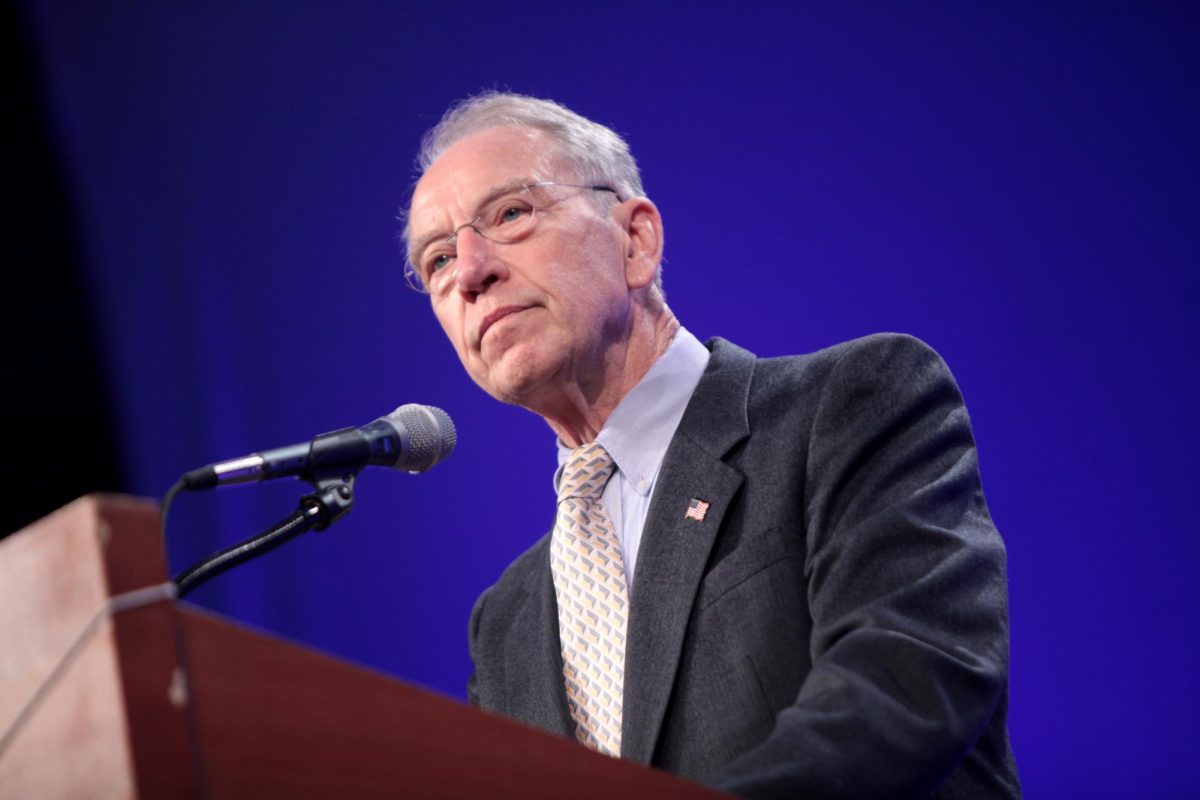WASHINGTON D.C.- Donald Trump’s ever-shifting position on immigration has left many people asking, “What does he really plan on doing?”
As the newly-inaugurated President enters the first few months of his term, many students at Woodside, especially those with connections to undocumented immigrants, anxiously await any news on how he plans to address immigration.
“There’s a lot of fear of the unknown,” head school counselor Francisco Negri told the Woodside World, referring to the mood of students with connections to undocumented immigrants. “I think that this was a very tough election cycle and there were some things that were said that caused a little bit more angst and fear than normal.”
While it has been notoriously difficult for analysts to predict Trump’s actions, one can get a general idea of what he plans to do from his website.
Under his “10 Point Plan to Put America First,” Trump promised to “move criminal aliens out day one, in joint operations with local, state, and federal law enforcement.”
Promises to secure the United State’s southern border and to crack down on undocumented workers and families remained relatively consistent throughout the President’s campaign, contributing the enormous amount of support he received from blue-collar American workers, who often blame undocumented workers for unemployment.
“By ramping up deportations, the Trump administration could end up deporting the undocumented parents of U.S. citizens,” Eric Cohen, the executive director of the Immigrant Legal Resource Center, which trains immigration law professionals, told the Woodside World. “This could be devastating because Trump would be breaking up families and allowing U.S. children to be here without the support and guidance of their parents.”
One of the major fears among students is the repeal of the Deferred Action for Childhood Arrivals (DACA) policy implemented during the Obama presidency, which allows undocumented students brought into the country as children to avoid deportation. Attacked as an overreach of executive power by Republicans at the time, a repeal of the program would likely be popular among the Republican establishment.
However, Negri offers a more optimistic insight into the program’s repeal, saying, “I know that our state, California, has set strict policies supporting students that are undocumented… …regardless of how the federal government is approaching [immigration].”
While the prospect of a DACA repeal seems very real, some suggest that if Trump decides to ditch the policy, change won’t be immediate.
“I do think that people with work authorization under DACA might (I say might, but not sure) be able to maintain their work authorization until their first authorization period runs out,” Cohen commented, suggesting that workers may be able to finish their two-year work authorization before deportation.
However, President Trump addresses DACA these next four to eight years, California assures undocumented students that, if they lose their DACA status, money for college will still be available to them through the California Dream Act.
A statement released by the California Department of Education on December 20, 2016 states that “regardless of what happens at the federal level, state financial aid for Dreamers remains legal in California.”
If students still fear deportation as a result of their immigration status being recorded in a school database, the district assures them too that this won’t be the case.
Resolution Number 1587 was passed unanimously by the Sequoia Union High School District Board of Trustees on December 14, 2016, guaranteeing that if the federal government requests information they feel intrudes on a student’s privacy, “The District shall take all legally permissible actions to protect the privacy rights of its students and families.”
Lastly, Woodside High School itself hopes to be a beacon of hope in the coming years, providing a place of learning and safety for all of its students.
Negri is more than willing to do his part to help, guaranteeing that it will be his duty to “help [students] understand their rights and to help connect them to resources to advocate, when necessary, for those rights.”









